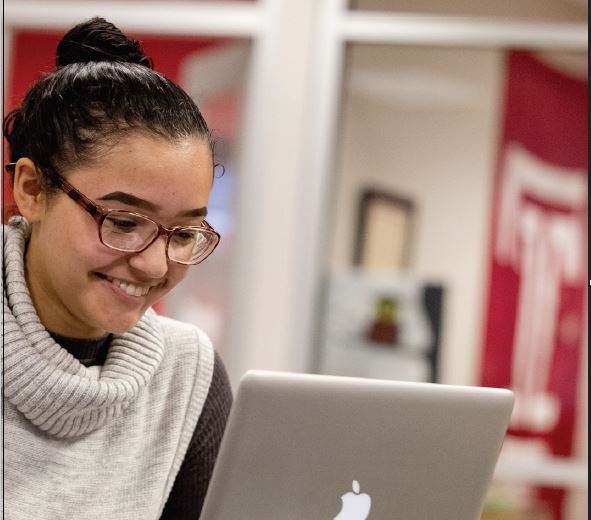Teaching is one of the most important jobs in society. At the college level, professors and instructors are working with students to create paths toward success in every career imaginable.
Having teachers and support structures in place to ensure that every student has accessibility to the tools necessary to succeed is essential. For students with disabilities, that may mean teachers who have had specialized training or having technology support, something that isn’t always available at even the best of times.
To address the essential need for greater accessibility for students with disabilities, Temple University Harrisburg will host a free virtual conference series — Accessibility in the Virtual Classroom: Collegiate Conference Series for Developmental Disabilities — on Wednesdays, April 14, 21 and 28. Student and family sessions will be held from 1 to 2 p.m. while faculty and support staff sessions will be held from 2:15 to 3:15 p.m.
In the year since the COVID-19 pandemic began, barriers to educational accessibility for college students with disabilities has been exacerbated exponentially, according to Jeff Rients, Senior Teaching and Learning Specialist at Temple’s Center for the Advancement of Teaching (CAT).
“COVID really is a magnifier for anyone who has any issues in education across a large spectrum. One of the concerns is that some of these students are being left behind in an entirely new way,” he said. “There was research published just this month in the Journal of Intellectual Disability Research. They conducted surveys to families of students with intellectual and developmental disabilities and found that approximately 74 percent of such students in the U.S. lost access to at least one educational resource during COVID. We’re trying to figure out what we can do to address that.”
The virtual conference series is designed for college students with disabilities and the faculty and staff who support them. Workshops are outcome driven to provide best practices and applicable skills to enhance the learning experience and allow for greater success. Temple University Harrisburg is hosting the series in coordination with CAT, the Institute on Disabilities at Temple University (IOD) and Temple University Disability Resources and Services (DRS).
“Across the country, teacher education at the intersection of online learning and supporting students with disabilities is extremely scarce. Despite the best efforts of CAT, DRS, and IOD, students with disabilities still face educational inequities,” said Rachel Judith Howe, Grant Writer at Temple University Harrisburg. “Parents and support staff have also been struggling to support students at all levels in an online learning environment — nineteen percent of undergraduates report having a disability. In a focus group of college students with disabilities, one of the largest barriers was faculty who were uninformed, non-responsive to, or even pushed back on students’ needs for accommodations.”
Student and family workshops will include topics such as time management, managing remote learning in a virtual world, and navigating the accommodation letter. Faculty and support staff sessions will focus on building courses for success, managing virtual life and improving the learning experience for disabled students.
“For a lot of professors or instructors, almost all of their training was geared toward in-person instruction. Whether they are capable of meeting the needs of all students in the classroom or not, it’s exacerbated in a virtual environment. The challenge that students face can be anything from lacking a platform to use video capabilities to something as basic as internet access. Some of the challenges that all students face are that much more difficult for students with disabilities,” said Lindsay Price, Manager of Conferences and Events at Temple University Harrisburg. “I have family who work with children with autism, now virtually, and sometimes it’s harder to reach them — they may not have a home situation that allows them to get those resources or get the access they need. Some students understandably struggle to maintain their attention on virtual instruction for hours a day. We’re trying to find ways to overcome obstacles in reaching students remotely that we never had to face before.”
According to Price, the April 14, 21 and 28 presentations will provide live captioning for ASL and language interpretation, if requested.
“We’re also providing accessible documents for those who may need other supportive resources,” she said. “What is great is that this mini-conference series is just the beginning of the conversation; ultimately we want to implement some of these practices on an ongoing basis.”
The ultimate goal, Rients said, is “for teachers, mentors, families and staff to make substantive changes for the betterment of supporting the students.”
“We’re planning follow-ups to see what changes they’ve implemented and gain an understanding of the topics and concerns we need to revisit in the future. My mind is always on the instructors and their relationship to the students,” he said. “I’m always looking into making instructors into the best instructors they can be; that includes being their best selves for all of their students. You have to always remember to teach to the students you actually have in front of you, whether they are with you in the classroom or connecting to you virtually.”
Learn more about the conference series and see the schedule of events by visiting the conference website at harrisburg.temple.edu/disabconf.
For additional information, contact Conference Coordinator Lindsay Price at [click-for-email].

